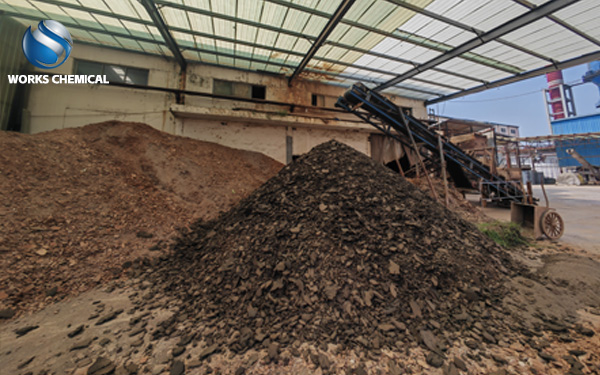
Sludge treatment is an important link in the process of wastewater treatment, and the viscosity and water resistance of sludge often bring a lot of problems. This article will give you a detailed introduction to the characteristics and applications of sludge conditioners to help you solve the problem of viscous and difficult to dehydrate sludge. Introduction of sludge conditioner.

Sludge conditioner is a kind of chemical specially used for sludge deep dewatering treatment, which improves sludge dewatering effect by changing the physical and chemical properties of sludge. There are many kinds of sludge conditioners, including organic polymers, inorganic salts and biological agents, among which organic polymers (such as polyacrylamide) are the most widely used.
Second, the mechanism of action of sludge conditioner
Sludge conditioner can improve viscous and refractory sludge mainly through the following mechanisms:
1. Neutralizing charge: the cation and anion in the sludge conditioner neutralize the charge on the surface of the sludge particles, eliminate the electrostatic repulsion between the sludge particles, and promote the accumulation and flocculation of the sludge particles.
2. Bridging action: The polymer in the sludge conditioner can form a bridging structure with multiple sludge particles, promoting the agglomeration of particles to form a larger floc, thereby reducing viscosity and improving settling speed.
3. Change the sludge structure: the sludge conditioner can change the distribution of water molecules in the sludge, increase the permeability of the sludge, is conducive to the rapid discharge of water, and improve the dehydration effect.
3. Application cases of sludge conditioner
The following is a sludge conditioner in the treatment of viscous and difficult to dehydrate sludge application case:
The sludge in a municipal government sewage treatment plant is viscous, and the traditional sludge dewatering method is not effective. After experiments, Shijun sludge conditioner was selected for treatment. After the addition of the conditioner, the floc in the sludge became more compact, and the settling rate increased significantly. After treatment by dewatering equipment, the moisture content of sludge is obviously reduced, and the expected dewatering effect is achieved. In addition, the amount of sludge treated has also been significantly increased, greatly reducing treatment costs and operating expenses.
Fourth, the selection and use of sludge conditioner
1. Choose the right sludge conditioner: the nature of sludge varies due to factors such as sewage treatment process and sewage source, so it is necessary to choose the right sludge conditioner according to the specific situation. Small field trials are usually recommended to evaluate the effects of different conditioners in order to select the best product.
2. Optimize the dosage: The dosage of sludge conditioner has an important impact on the dehydration effect. The dosage is too low, the dehydration effect is not good; Excessive dosage may lead to waste of conditioner and increase treatment cost. Therefore, it is necessary to determine the appropriate dosage on the basis of tests.
3. Use with dewatering equipment: the sludge conditioner should be used with the corresponding dewatering equipment (such as centrifugal dewatering machine, plate and frame filter press, etc.) to achieve the best dewatering effect. At the same time, attention should be paid to the operating parameters of the equipment, such as pressure, speed, etc., to ensure the stable operation of the entire dehydration process.
V. Summary
Sludge conditioner, as a special chemical for viscous and difficult to dehydrate sludge, can effectively improve the sludge dewatering effect and reduce the treatment cost. In practical application, the key to achieve high efficiency sludge dewatering is to select the appropriate conditioner, optimize the dosage and cooperate with the use of dewatering equipment.